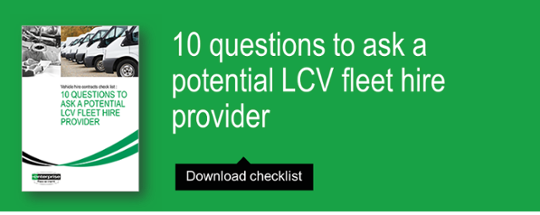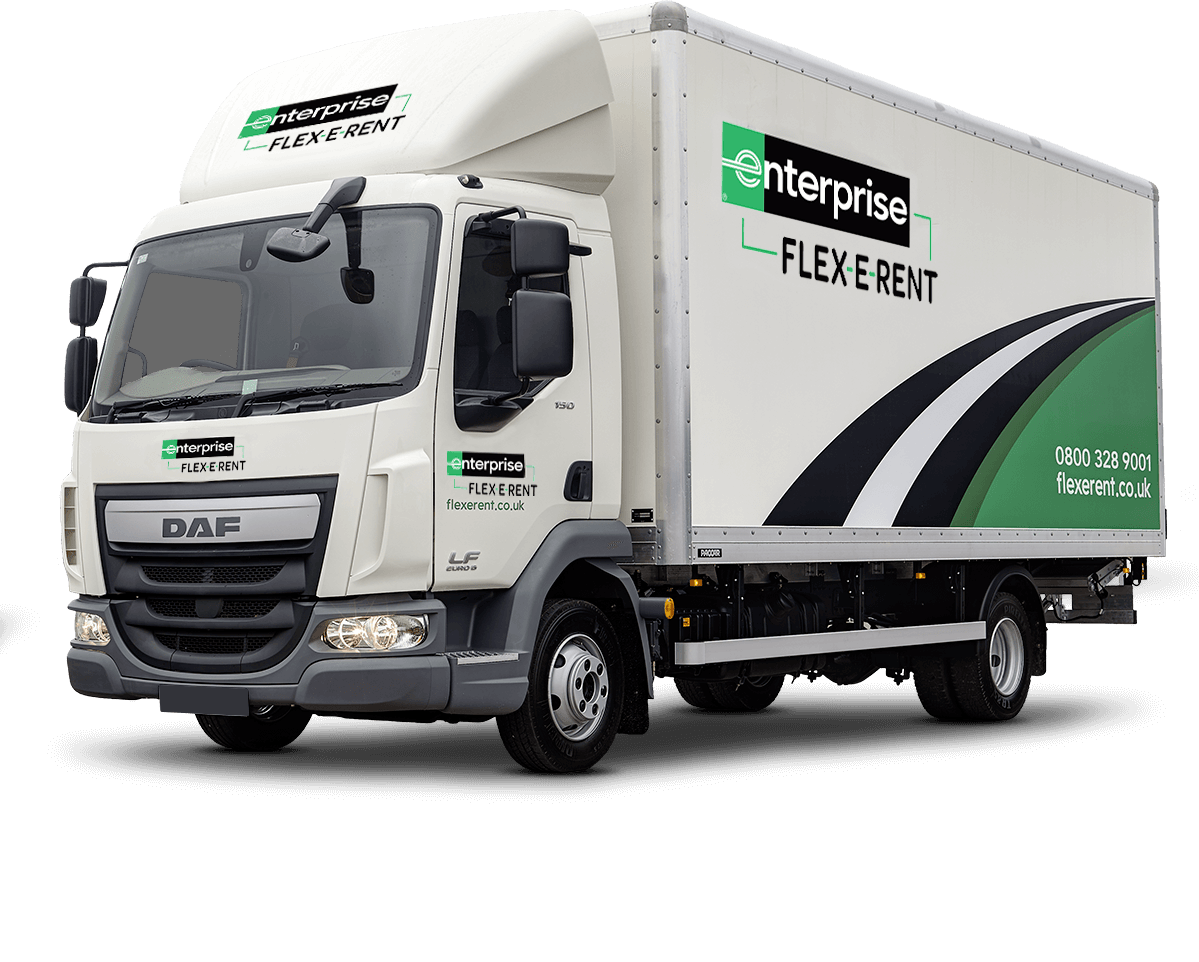When you are comparing service, maintenance and repair (SMR) contracts for your fleet, you could be forgiven for thinking that they will all be much of a muchness. After all, the British Vehicle Renting and Leasing Association (BVRLA) has strict standards that members must adhere to and, at first glance, many contracts may appear to be the same. You will probably find very similar policy clauses and – importantly – cover exceptions on issues such as wear and tear.
However, there are 5 things that you should look for when choosing between SMR providers that may not be covered by the terms and conditions.
What is the size of their fleet?
The business consequences of a commercial vehicle breaking down will be at the forefront of most fleet managers’ minds as the costs can quickly escalate. In addition to repair work, there may be costs associated with failing to meet agreed delivery contracts - with potential financial penalties arising from broken SLA agreements – and paying drivers for doing nothing whilst the vehicle waits to be repaired.
The costs and speed of repair should therefore be a key differentiator when comparing SMR services, so you should ask how large your vehicle provider’s commercial fleet is – the more commercial vehicles that they operate, the greater their bargaining position with repair shops when it comes to costs and speed of repair.
For example, we operate over 25,000 vehicles in the UK and our bargaining position means we are able to negotiate reduced repair costs and repair turn-around of 24 hours – instead of the 2 week wait that small fleets carrying out repairs themselves may encounter.
With a larger fleet provider, you also get access to experts with a wealth of knowledge for free.
Flexibility of repairs
All commercial fleets have different requirements. Some may have an in-house repair team, others may have a preferred body repair shop. One size does not fit all, so you should ensure that your SMR contract allows you a range of options: taking it to one of their preferred local dealers; repairing in-house; mobile repairs on your site/breakdown location or at your own preferred repair shop.
You should also check the cost of any repair options as they can soon add up. For example, do they charge extra for mobile repairs or collection of your vehicle?
Vehicle composition of fleet
The composition of your commercial vehicle hirer’s fleet is important for a number of reasons. Firstly, if your vehicle breaks down, you will want a like-for-like replacement vehicle. If your commercial vehicle hirer does not have a sufficient number of vehicles for your exact needs, then you are likely to be left without a suitable replacement if your vehicles break down.
Secondly, if your hirer does not have many vehicles that meet your requirements, it is unlikely that they will have the expertise when it comes to your SMR needs or appropriate replacement vehicles when you need them most. For example, if you operate a fleet on or around a construction site, your vehicles are likely to require more repairs due to the nature of the terrain and tougher working conditions. Or if you operate a courier fleet then you will be totting up many miles on the clock and so your servicing intervals should increase.
Make sure you question your SMR provider to ensure that they have the required specialised number of vehicles and knowledge to provide you with appropriate replacement vehicles quickly, and ensure that your fleet is maintained optimally and efficiently.
Location
Make sure that you check how far the nearest repair depots are to your fleet’s coverage, or how many mobile technicians they have in your operational area, to ensure speed of repair.
Like-for-like
Just because your SMR contracts states that it will provide you with a like-for-like vehicle, it does not necessarily mean that they will do so. There is usually a clause within the contract that allows substitution of the nearest specification vehicle if your hirer does not have your model in stock.
In some instances, the replacement vehicle provided will not be fit for purpose. It is therefore worthwhile checking the quantity of speciality vehicles that your vehicle hire provider has access to, as well as their turnaround time for replacement and repair.
Flexibility and honesty
One final question you should also ask yourself is how flexible your vehicle provider is.
- How do they deal with “wear and tear” issues within the contract? For example, do they offer betterment, where the cost of any wear and tear-related repair is split with the hirer proportional to its total use?
- If you operate a large fleet where you cannot risk being a vehicle down for any time, can they offer flexible peace of mind and allocate a replacement vehicle to your fleet for a small additional monthly cost?
- Is there transparency in the way that damage and repairs are dealt with at the end of the contract, such as total cost of repairs and actual repairs carried out?
- Do they take a pragmatic approach to repairs? For some sectors such as construction, it is unreasonable to not expect a significant amount of wear and tear, and a decent vehicle hirer should factor this into the contract at the outset.
If you want to find out more about Flex-E-Rent’s extensive fleet options and approach to SMR, then why not get in touch with one of our vehicle experts today?
SMR is just one aspect of your commercial vehicle hire contract. For further information on the questions you should ask any potential provider, why not download our guide: 




